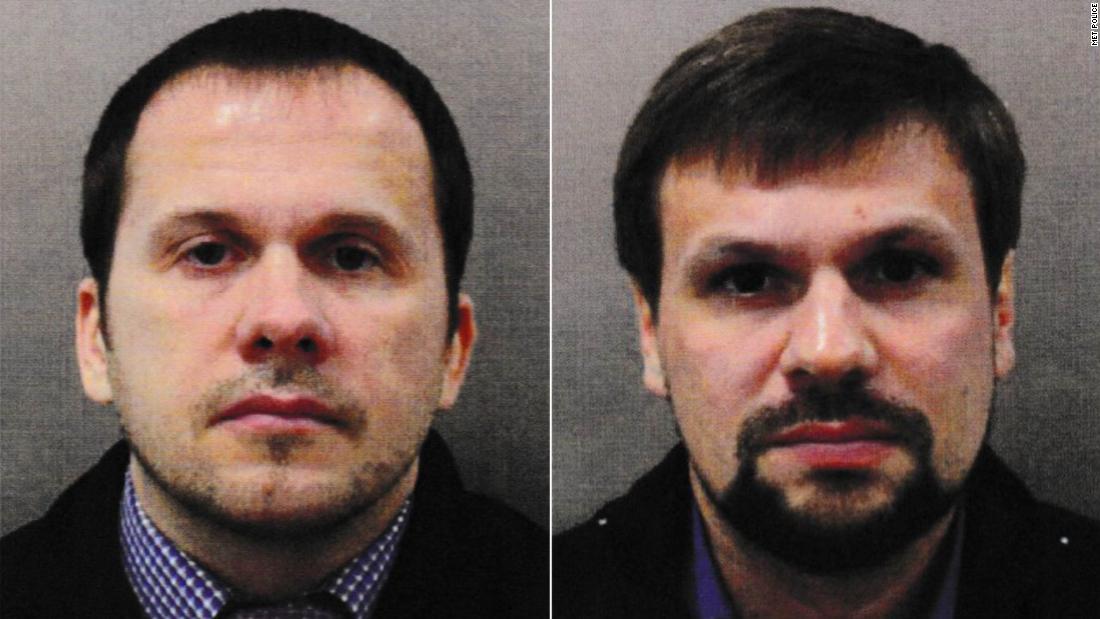
Czech police said on Saturday they were looking for two men “in connection with the investigation” of a 2014 explosion at an ammunition depot in Vrbetice, releasing images of Salisbury suspects Alexander Petrov and Ruslan Boshirov.
Police added that the men carry various passports, including Russian passports with the names of Petrov and Boshirov.
Police say the men were in the Czech Republic between October 11 and 16, 2014 and added that they hold passports from Moldova and Tajikistan, under the names of Nicolai Popa and Ruslan Tabarov, respectively.
Shortly before the announcement, the Czech Republic said it would expel 18 employees of the Russian Embassy in Prague in connection with the 2014 explosion, which caused huge financial and environmental damage.
“As foreign minister, I have decided to expel all employees of the Russian embassy who have been clearly identified by our security services as officers of the Russian intelligence services, SVR and GRU,” the interim foreign minister said at the time. Jan Hamacek.
Russian intelligence service
Prime Minister Andrej Babiš said on Saturday “there are well-founded suspicions that the officers of the Russian intelligence services GRU, unit 29155, were connected to the explosion of an ammunition depot in Vrbetice in 2014.”
He added that the explosion “caused enormous material damage, serious threats and disruptions to people’s lives, but especially killed two of our citizens, two unexpected and innocent fathers.”
Babiš said he briefed European Council President Charles Michel on the investigation into the blast. The Czech Republic will discuss the blast with NATO and European Union allies on Monday, according to a tweet sent early Sunday by Hamacek.
Hamacek was scheduled to travel to Moscow in the coming days to discuss the possibility of the Czech Republic purchasing the Russian Covid-19 vaccine. The trip was canceled because it would be “necessary for Monday’s government meeting,” he said.
After that announcement, the spokeswoman of the Russian Foreign Ministry, Maria Zakharova, declared for the Russian state news agency TASS: “Prague is aware of what will follow such tricks”.
In a tweet sent on Sunday, the deputy head of the mission at the US Embassy in Prague, Jennifer Bachus, said: “The United States stands with its firm ally, the Czech Republic. We appreciate their significant action in imposing costs on Russia for its dangerous actions on Czech soil. “
The British Foreign Secretary, Dominic Raab, said that the United Kingdom “stands” in full support of our Czech allies, who have exposed the lengths that Russian intelligence services will go to in their attempts to carry out dangerous and malicious operations in Europe.
He added that he showed “a pattern of Moscow’s behavior following the Novichok attack in Salisbury.”
CNN’s Tara John, Tomas Etzler, Anna Chernova, Sharon Braithwaite and Arnaud Siad contributed to this report.